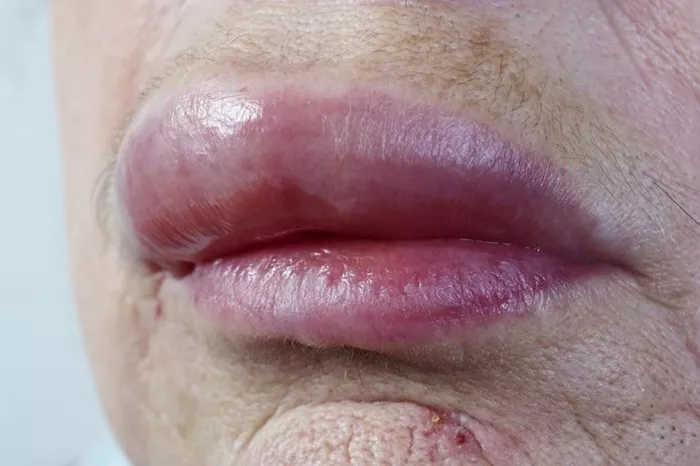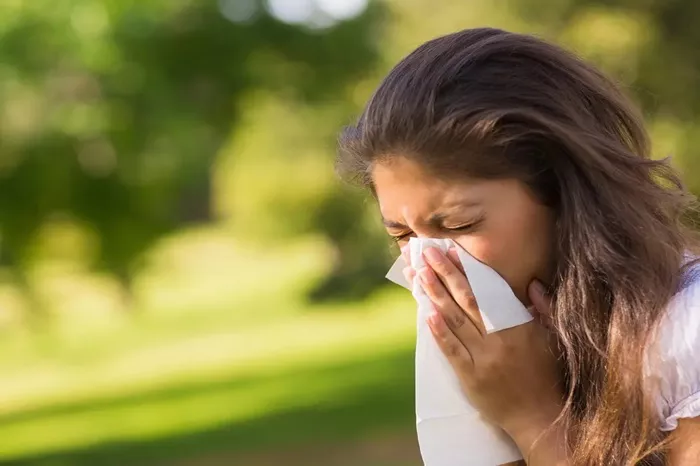Oral Allergy Syndrome (OAS), also known as pollen-food syndrome, is a relatively common condition characterized by allergic reactions to certain fruits, vegetables, and nuts. Individuals with OAS typically experience itching, tingling, or swelling of the lips, mouth, throat, or tongue after consuming certain raw or fresh foods. While OAS can be uncomfortable and inconvenient, there are several strategies for managing symptoms and reducing the risk of allergic reactions. In this article, we will explore what to do for Oral Allergy Syndrome, including dietary modifications, treatment options, and preventive measures.
Understanding Oral Allergy Syndrome
Oral Allergy Syndrome is caused by cross-reactivity between proteins in certain fruits, vegetables, and nuts and airborne pollen allergens, such as tree, grass, or weed pollen. Individuals who are allergic to pollen may experience allergic reactions when consuming foods that contain similar proteins to those found in pollen. Common triggers for OAS include:
Birch pollen: Associated with reactions to fruits such as apples, pears, cherries, peaches, and apricots.
Grass pollen: Linked to reactions to melons, tomatoes, and oranges.
Ragweed pollen: Associated with reactions to bananas, cucumbers, zucchinis, and sunflower seeds.
The symptoms of OAS typically occur immediately or shortly after consuming the offending food and may include itching, tingling, or swelling of the lips, mouth, throat, or tongue. In some cases, individuals may also experience mild throat irritation, nasal congestion, or gastrointestinal symptoms.
Managing Oral Allergy Syndrome
While there is no cure for Oral Allergy Syndrome, several strategies can help individuals manage symptoms and reduce the risk of allergic reactions. These strategies include:
1. Identify Trigger Foods
The first step in managing Oral Allergy Syndrome is to identify and avoid trigger foods that cause allergic reactions. Keeping a food diary can help individuals track their symptoms and identify patterns of allergic reactions. Common trigger foods vary depending on the type of pollen allergy, so it’s essential to be aware of potential cross-reactivities.
2. Cook or Process Foods
Cooking, heating, or processing foods can denature the proteins that trigger allergic reactions in OAS. Individuals with Oral Allergy Syndrome may find that they can tolerate cooked or processed versions of trigger foods better than raw or fresh ones. For example, baking, steaming, or microwaving fruits and vegetables can help reduce their allergenicity.
3. Choose Alternative Foods
If certain trigger foods cannot be tolerated even when cooked or processed, individuals with OAS can choose alternative foods that do not cross-react with their pollen allergens. For example, individuals allergic to birch pollen may choose fruits such as watermelon, grapes, or citrus fruits, which are less likely to trigger allergic reactions.
4. Practice Oral Hygiene
Rinsing the mouth with water or mouthwash after consuming trigger foods can help remove any allergenic proteins and reduce the risk of allergic reactions. Brushing the teeth and using dental floss can also help prevent lingering allergens from causing symptoms.
5. Consider Allergy Testing
If symptoms of OAS are severe or persistent, individuals may consider undergoing allergy testing to identify specific pollen allergies and potential cross-reactivities with foods. Allergy testing can help guide dietary modifications and treatment options to manage symptoms effectively.
6. Discuss Medication Options
In some cases, individuals with Oral Allergy Syndrome may benefit from using medications to alleviate symptoms or prevent allergic reactions. Antihistamines can help reduce itching, swelling, and other allergic symptoms, while corticosteroids may be prescribed for more severe or persistent symptoms. Individuals with a history of anaphylaxis or severe allergic reactions may be prescribed epinephrine auto-injectors for emergency use.
7. Consult a Dietitian
Working with a registered dietitian can help individuals with Oral Allergy Syndrome develop a well-balanced diet that meets their nutritional needs while minimizing exposure to trigger foods. A dietitian can provide personalized dietary recommendations, meal planning tips, and guidance on food substitutions and alternatives.
8. Consider Immunotherapy
In some cases, allergen immunotherapy, also known as allergy shots or sublingual immunotherapy, may be recommended for individuals with severe or persistent symptoms of Oral Allergy Syndrome. Immunotherapy involves gradually exposing the individual to small amounts of allergen extracts to desensitize the immune system and reduce allergic reactions over time.
Preventing Oral Allergy Syndrome
While it may not be possible to prevent Oral Allergy Syndrome entirely, there are steps individuals can take to reduce their risk of developing allergic reactions:
Avoiding exposure to pollen allergens by staying indoors during peak pollen seasons, keeping windows closed, and using air purifiers or filters.
Practicing good oral hygiene, including brushing and flossing regularly and avoiding mouth breathing, which can increase the likelihood of allergens entering the mouth and throat.
Being cautious when trying new foods or eating out, as hidden allergens or cross-contamination can occur in restaurants and food establishments.
Communicating food allergies and dietary restrictions to family members, friends, and healthcare providers to ensure they are aware and can provide appropriate support and accommodations.
Conclusion
Oral Allergy Syndrome can be a challenging condition to manage, but with proper awareness, dietary modifications, and treatment strategies, individuals can effectively reduce their risk of allergic reactions and improve their quality of life. By identifying trigger foods, practicing oral hygiene, considering medication options, and seeking guidance from healthcare professionals, individuals with OAS can take proactive steps to manage their symptoms and enjoy a varied and nutritious diet.
[inline_related_posts title=”You Might Be Interested In” title_align=”left” style=”list” number=”6″ align=”none” ids=”8894,8890,8886″ by=”categories” orderby=”rand” order=”DESC” hide_thumb=”no” thumb_right=”no” views=”no” date=”yes” grid_columns=”2″ post_type=”” tax=””]

































